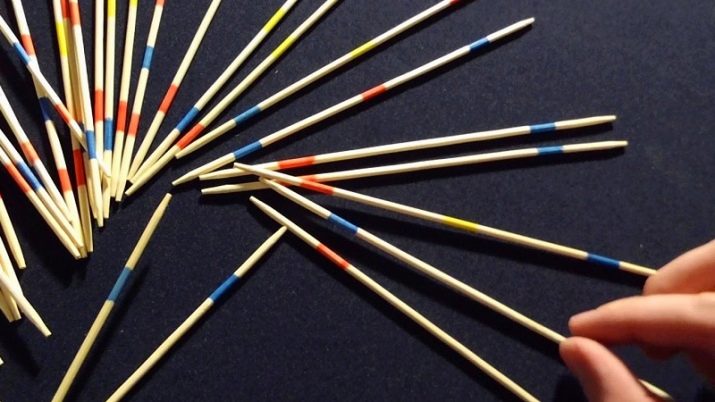Training memory and attention in adults

Many people complain that they often forget to complete some of the basic activities planned in advance. For example, take out the trash, close the window on time, etc. Some even suggest that such violations are harbingers of serious illness. Is it really? Or maybe forgetfulness is just a slight deviation? To answer these questions, it is necessary to consider the problem from all sides and find its root.
Reasons for forgetfulness and inattention
There can be many reasons for this. It all depends on the age of the person, his status and intelligence. If any individual after a head injury (or for another reason) cannot remember basic things, then perhaps he suffers from amnesia. There is also senile forgetfulness. In old age, the brain begins to work poorly due to a lack of oxygen and nutrients.
But do not rush to fatal conclusions, maybe you just suffer from forgetfulness due to "pathological" inattention. In this case, the person has the following signs: poor switching from one topic to another; often it becomes impossible to memorize educational material, etc.

Due to poor concentration of attention, the individual is not able to complete the work he has begun. Various diseases, such as tumors, atherosclerotic vascular changes, respiratory system disorders, cardiovascular problems, etc., can cause a sharp memory impairment.
In perfectly healthy people, memory can deteriorate due to constant stress and fatigue. Physical activity affects the quality of the brain in the same way as mental activity. Remember that everything should be in moderation. And, most importantly, get enough sleep!
Young people may have problems due to the "overflow" of memory with various information. For example, high school students preparing for the Unified State Exam often complain about poor assimilation of information. All this happens due to the fact that the brain cannot process too much of the acquired knowledge.
In mobile children, there are also signs of forgetfulness. It is difficult for a child to simultaneously focus on the educational process and on play activities. Many schoolchildren, especially first graders, want to play more than study. Yet again, after heavy workloads at school, younger students often suffer from immunity. Therefore, they are susceptible to ARVI diseases, etc. This also reduces concentration and memory.
In adults, there may be other factors that weaken memory. Passion for bad habits, such as alcohol and smoking, significantly reduces the full-fledged work of brain activity.

Memory can be impaired due to lack of vitamins. The lack of thiamine especially strongly affects the deterioration of her work. People with high intelligence also suffer from inattention. They are so busy with mental work that problems associated with everyday life recede into the background. And, of course, it is very difficult for a busy person to focus on such simple actions as turning off the iron, performing any minor obligations, etc.
There are also people who are used to doing several things at once. Some act this way, since they sincerely believe that it is in this way that they train their memory. Others carry out several cases at the same time in connection with official duties. Keep in mind, however, that scattered attention cannot improve performance. Continuing in this direction can lead to fatigue, and fatigue will lead to decreased focus and memory.
In any case, the elimination of the above problems directly depends on both the person himself and his loved ones. With consistent activities that increase your focus, your quality of life will improve dramatically.

Basic exercises
Before starting any action, it is advisable to identify the cause of memory impairment. If the reason lies in the pathological changes occurring in your body, then you need to contact a specialist who will help eliminate them. He will prescribe medications to help improve blood circulation in the brain and ensure proper nutrition.
Anyone should take care of their health. Therefore, in order to improve memory, first of all, one should give up bad habits such as smoking and alcohol. There are other methods that can help improve attention in adults. For example, such as memory training. Let's consider them in order.
Memorization of objects
Training your memory is not a very difficult process. Perhaps some fairly simple exercises that you can do at home on your own will help you. Try to describe something from memory. Take a kettle for example. It must have an unusual shape. The exercise is as follows. Consider your subject very carefully. Try to remember every single detail and color scheme. Then turn away from it and describe it in every detail: pattern, color, shape, etc.
Then you should turn around again and examine the object carefully. Determine what was overlooked and what you were able to accurately describe. Then repeat the exercise. As soon as you can tell in detail in all the details, consider that you have coped with the task.
Please note: the human brain is capable of processing a large amount of information. So test your potential and practice at the same time.

The next exercise will be a task where you will have to draw a kettle (you may have already used it in the previous task) from memory. This will require a sheet of paper and pencils.
Here's another interesting exercise. To do it, take a book with bright pictures. Pick and consider one of the most extraordinary. Then close the book. Then tell us what you remember. Repeat the exercise until you are perfect.
And here's an exercise to develop mindfulness. You will need an assistant to complete this exercise. Take some bright objects and place them on the table. Take a good look at each item separately and remember the location. Look away for a few minutes and analyze the picture in your mind. During this time, have your assistant remove one of the things from the table. After that, you must determine which thing is missing and describe it from memory.
Without visual analysis the qualitative perception of this world is impossible. Therefore, he should be trained according to the following method. Take in an involuntary order about 3 dozen sticks. But just don't count them. Lay them out on the table as needed. Look at this picture for 3 seconds. Then you should turn away and in your mind count the approximate number of sticks, and at the same time determine the location of each. Turn around and compare your mental picture and the original picture. Count the sticks. If everything matches, then you have excellent visual memory. If it doesn't work out well, then repeat the workouts.

"Stranger"
This exercise is the simplest and does not require much time. It can be done when you move in the direction of work or on any business. When you walk down the street, strangers are walking towards you. You also meet strangers in the transport. Try to choose a certain object for yourself and carefully observe it and its behavior. Remember the person in person. Before going to bed, remember it and try to describe it in your mind.
It will be even better if you restore in your memory the chronology of the whole day, the people with whom you exchanged greetings and the objects that surrounded you at that moment. If you managed to restore almost all the events to consciousness, then you have a good potential for further studies.
There is also a method called eavesdropping. If you often travel by public transport, then try to listen and memorize an excerpt from the conversation of your fellow travelers. Be sure to carefully consider their appearance and observe their behavior. In the evening after work, sit comfortably in complete silence and try to remember and also reproduce the conversation of people.
It is also advisable to describe their appearance. This exercise allows you to easily develop memory and attention in a short time.

Aivazovsky's method
Talented people have a very strong memory, especially those who are painting. The extraordinary artist Aivazovsky had an excellent photographic memory. He could look at the waves and the raging sea, as well as the ship sailing along them, and then imprint this picture in his brain for a long time. He did this as if photographing a landscape.
When he took up the canvas, he could easily reproduce the picture he saw in his memory. Then he had to transfer this image to the canvas with a brush and paints. Aivazovsky managed to achieve this effect with the help of many years of studies. He could watch the sea for a long time. During such manipulations, the artist closed his eyes and personally imagined the future picture. In the same way, memory can be trained by anyone at any age. Therefore, the method described below is called the Aivazovsky method.
So, for 5 minutes, carefully and intently look at an object or at any picture. Then close your eyes and try to visualize it in your mind. It will be even better if you transfer the image of the thing in question to a sheet of paper using pencils. It is this method that will contribute to effective training of your memory.

Writing stories
This method will help you find harmony with yourself and learn to pay attention to various little things. As a result, memory will develop.
For this technique, the psychologist will need to involve several people at once. As soon as a certain company meets, each of its members should sit on chairs in a circle. After that, everyone in turn begins tell different stories that happened in their life. Wherein it is not forbidden to embellish your narration a little. The rest of the audience attentively listen to the narrator and imagine in their minds what is being discussed.
In the next lesson, the psychologist may suggest continuing the conversation started in the previous lesson. Only the nature of the lesson needs to be changed a little. Each story previously told is put forward for discussion. Further, all members of the company are invited to continue its storyline or somehow change the script. You need to make it funny and interesting.
At the same time, the specialist asks the assembled people to take an active part in the game and try to use their imagination to the maximum.

We use mnemonics
To improve memory and to concentrate attention, you can use mnemonic techniques, which consist of a large set of memorization. Let's take a look at the various exercises.
- We turn on consciousness and encrypt words. This must be done using letters. For example, let's take the word "car". Let us designate this word, for example, with the letter "U", etc. This is how fast memorization will take place.
- If there are vivid associations, then the information is easy to remember. For example, you need to memorize the separate words "soap" and "tasty". So, we remember the phrase “tasty soap”. Unusual? So this is the whole secret.
- Do you want to remember information - simply rhyme it.
- When learning foreign words, use consonance. For example, the English word "tonic" can be associated with the Russian word "thin".
- When memorizing objects, give them names that you can easily perceive. For example, a building of a cosmetic factory can be named “powder”.

Features of speed reading
You can develop mindfulness using this simple method at home. Speed reading gives many advantages when doing it. In addition to developing attention, you can also become an intelligent person with a very good memory.
But first you need to understand the reading technique itself. This process goes like this. You look at the words (usually a pair), and a fixation occurs in your mind. This process takes about a quarter of a second. And then there is a shift in gaze to another phrase. There is a jump, and it takes a split second. After a few repetitions, a phrase looms in your head.
This process takes about half a second. So, it turns out that a reader with normal ability can read about 200 words in 1 minute.
You can improve the result if you do speed reading. There are 4 basic speed reading techniques.
- When an individual leads the eyes along the lines at a certain interval using a pointing object (sharpened stick). This eliminates confusion of the location of the lines.
- Fluent reading implies highlighting the main parts of the text. You will not learn to read faster this way, but you will learn to identify those lines that are not important and you can skip them.
- The text is split into parts using fast visualization method. There is no eye movement here at all.
- With help peripheral vision you can cover a large amount of text. This eliminates unnecessary eye movement, and thus you eliminate the load on them.

However, you may not achieve the desired result when speed reading. It all depends on the individual characteristics of the person and on the anatomical capabilities. If you have poor eyesight, the reading effect will decrease. RAM is also of the utmost importance. If she is not trained, then you can see a thousand words at once, but do not assimilate the material you read.
Do you need to use speed reading? It is necessary if you want to study material that does not require special attention, and for its assimilation, the use of deep mental activity is not required. For example, you know the recipe for a dish, but you need to clarify some details.
By constantly practicing reading and gradually increasing your pace, you will learn to read quickly and understand the essence of what you read.

Recommendations
Memory and attention are inextricably linked. If a person does not pay proper attention to the information, he will not be able to assimilate and remember it. Therefore, by developing attention, you will simultaneously develop memory. Here are the methods of development of both.
- When solving logic problems, puzzles develops attentiveness and photographic memory. These methods will help the development of logical thinking. And this function will only increase your intellectual level.
- Read and study information, which you do not quite understand and for the assimilation of which you will need to use the entire stock of intelligence.
- Get busy memorizing quatrains.
- Change your line of business frequently. Even if you are writing books, then try to sew yourself some fashionable dress or build a locker yourself.
- All classes should be conducted in complete silence. This way you will not be distracted and will be able to concentrate on the essentials.
- After some mental exercise, take a walk in the fresh air. This will supply your brain with oxygen.
- Get enough sleep... Your brain needs to be unloaded. Then he will be able to work effectively.









